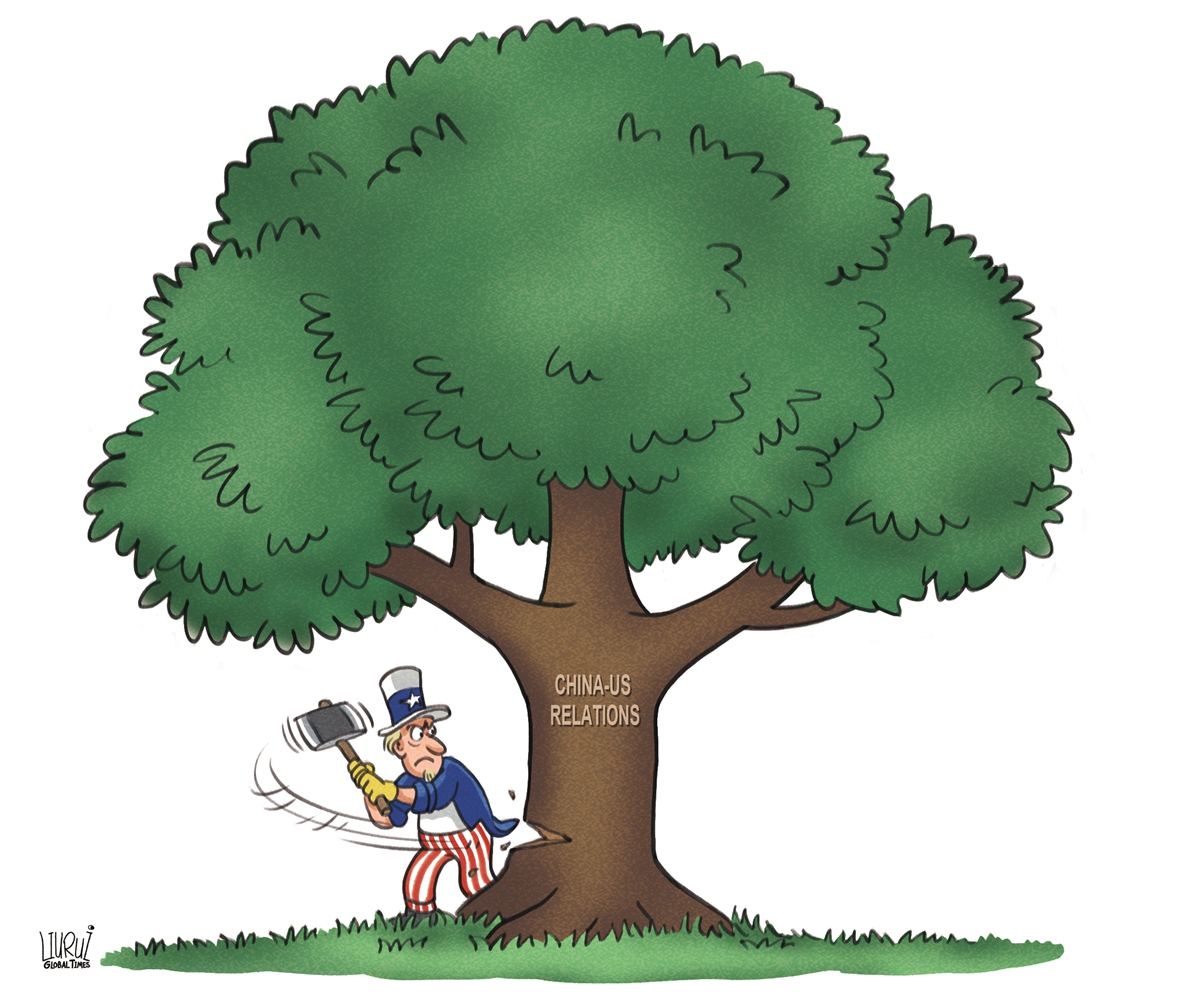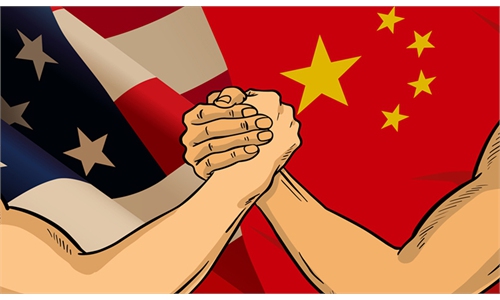
Illustration: Liu Rui/GT
The continuing friction and turmoil in China-US relations has brought to the fore the question of "who lost America?" From the US' existing standpoint, the logic in this question is roughly as follows: China had once won over the favor, trust and friendship of the United States of America. But it later lost the US as it became tough, aggressive, and arrogant. In a nutshell, the question of "who lost America?" essentially raised detailed inquiries about how China made mistakes that led to the loss of America.
The essence of this logic is that China should undertake the obligation of unconditionally pleasing the US in accordance with the wills of the US. Such assumptions fail fundamentally. As Harvard Professor Stephen Walt pointed out in his article "The Death of American Competence," what the US needs to deal with is its hubris on many major issues, including China-US relations, because such hubris often causes false ideas that affect people's accurate understanding of the problems and even exacerbate the deteriorating situations.
From China's perspective, continuity and stability are the keys. Chinese leaders have always attached great importance to the China-US relations and are willing to manage and handle the divergences within the relations in a responsible manner. As Chinese Ambassador to the US Cui Tiankai recently stated at the Aspen Forum, "The fundamental question for the United States is very simple - Is the United States ready or willing to live with another country with very different culture, very different political and economic systems?"
On the whole, the development of China-US relations is affected by two types of factors: One is the change of elements that can be objectively measured; the other is the change of situations based on cognitive frameworks.
How can we ensure that subjective cognition accords with objective cognition? This question especially carries weight now because how we make timely updates and necessary adjustments is key when the subjective framework for understanding China-US relations needs to be renovated. We have always had at major historical junctures a core element that has affected the development and changes of China-US relations.
The historical changes in China-US relations since in the early 1970s are closely related to the timely adjustment of the US strategic framework toward China, initiated by then president Richard Nixon and Dr Henry Kissinger. Also, it is obvious that since the US still has comparative advantages in China-US relations today and in the foreseeable future, the US bears more responsibility for changes in bilateral ties.
As President Xi Jinping pointed out in a recent speech, "We cannot have ourselves physically living in the 21st century, but with a mindset belonging to the past, stalled in the old days of colonialism, and constrained by zero-sum Cold War mentality."
China has been working hard to maintain the sound development of China-US relations. Of course, this is based on the needs of China's own interests. It is also based on China's correct understanding of the nature of this bilateral relationship and its far-reaching impact on the entire world: The sound development of relations is beneficial to both countries and the entire world. However, such a relationship also requires necessary adjustments to reflect and adapt to the profound and far-reaching changes in both countries that transpired in the aftermath of the Cold War.
Frankly speaking, the Americans seem to be feeling a deep nostalgia right now. They are hoping to go back to the "good old days." As such, they are directly and indirectly raising accusations that China is responsible for "losing the US friendship," as if China-US relations are a byproduct of Washington's magnanimity. None of these notions are healthy, and they harm basic senses of decorum in diplomacy required for the sound development of China-US relations.
This era of globalization has undergone, and is continuing to undergo, profound changes. At this juncture in history, major powers, including China and the US, bear special responsibilities. However, the way powerful countries perform these responsibilities and the relationships among these major powers must also reflect the characteristics of the times. We should now strive to overcome the hangover of Cold War memories. Humanity should no longer be entangled with questions of "who lost whom." We should quickly build a new interactive model based on mutual respect for the other's core interests, and meet each other half way.
The author is professor at the School of International Relations and Public Affairs of Fudan University. opinion@globaltimes.com.cn

